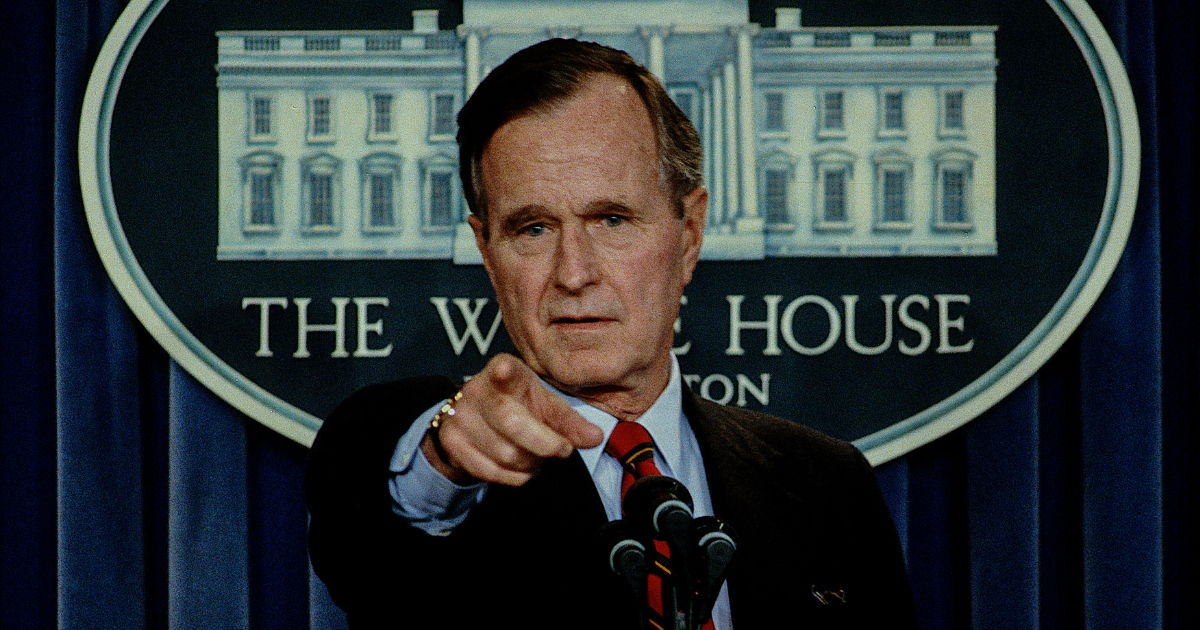
This Was George HW Bush's Greatest Achievement
Numerous tributes to George H. W. Bush this week hailed his crucial role in helping to peacefully close the Cold War and turn out the lights on the USSR. It was the pivotal event of the close of the last century.
As a sign of how much things have changed, I was contacted shortly after Bush’s death by a reporter from Pravda — the longtime mouthpiece of the Soviet empire. The mere fact that Pravda would request my assessment is a striking indicator that the Cold War has long been mercifully consigned to the dustbin of history. In the old days, Pravda would have accused me of “pathological and lunatic anti-communism,” a charge the Kremlin actually leveled against courageous dissidents like Vladimir Bukovsky and Zhores Medvedev. They were literally sent to insane asylums.
But today, well, these are better days.
Without hesitation, I told the Pravda reporter that Bush is one of the unsung heroes of the end of the Cold War. His single greatest achievement, and perhaps the primary reason for him having been president, was to be there at that critical juncture from 1989-91 when the USSR faded into what eventually became Russia. He was the ideal man for the job after Ronald Reagan left the presidency in January 1989. His foreign-policy experience, credentials, and wisdom were essential for the international task at hand. Both Mikhail Gorbachev and Boris Yeltsin were thankful that Bush was at the helm during that chaotic period that had the potential to not end peacefully.
Of course, that’s no unique insight by me. Many have commented on this crucial function that Bush played. I’ve heard no commentator, however, mention maybe the most poignant Bush moment in the end of the USSR. Maybe that’s because it was witnessed by no one, and only those of us in the strange habit of reading Soviet memoirs would know about it.
The date was Christmas Day 1991. Mikhail Gorbachev called President Bush to say: “You can have a very quiet Christmas evening. I am saying good-bye and shaking your hand.”
That evening, Gorbachev went on television to announce he was leaving his post. By resigning as head of the USSR that Christmas Day, Gorbachev also resigned the USSR and provided the time of death of the communist empire. He was the last thread holding the tattered mess together.
The symbolism of Gorbachev’s resignation on that special day was rich: The Bolshevik dictatorship, born in October 1917, which declared war on Christians and other believers, was buried on the day the world celebrates the birth of Christ.
Bush was the man who took the call. He took it with grace and (a favorite word of Bush) with prudence (a virtue). He refused to dance on the Soviet grave. Not only was it the gracious thing to do but also the politically smart thing to do. He did not want to antagonize communist forces still at work in Soviet society. Indeed, those forces had attempted a coup of Gorbachev only four months earlier, and the Communist Party would remain the largest party in the Duma throughout the 1990s. Bush played it smart.
In the end, if history remembers George H. W. Bush for only one thing, it needs to be this. It was his greatest achievement.
This article first appeared at the Pittsburgh Tribune-Review and on the Vision & Values website.
The views expressed in this opinion article are those of their author and are not necessarily either shared or endorsed by the owners of this website. If you are interested in contributing an Op-Ed to The Western Journal, you can learn about our submission guidelines and process here.
Truth and Accuracy
We are committed to truth and accuracy in all of our journalism. Read our editorial standards.
Advertise with The Western Journal and reach millions of highly engaged readers, while supporting our work. Advertise Today.












